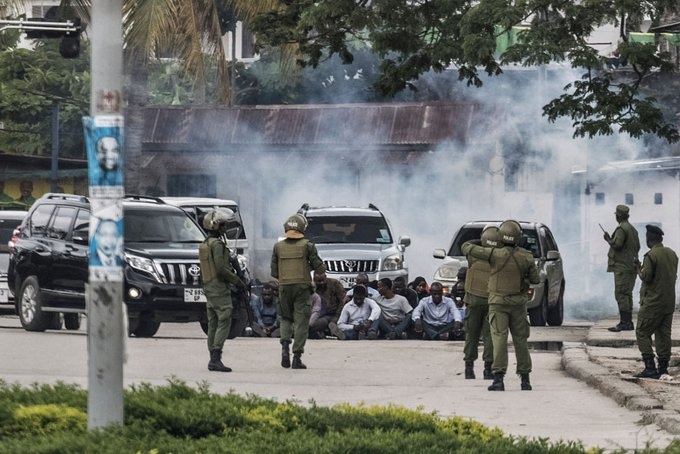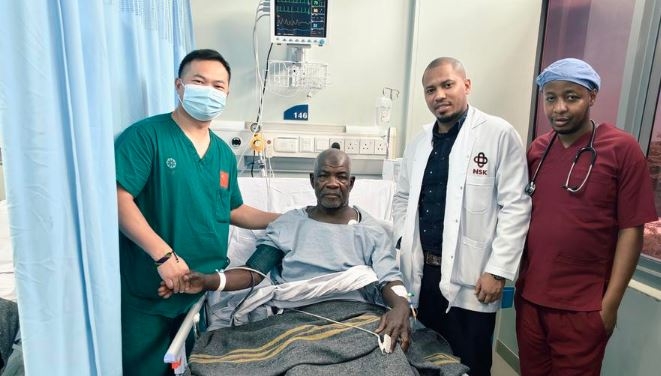The Association of Media Women in Kenya on Tuesday donated food and sanitary products for 400 girls in four Malindi schools.
The organisation said children in Malindi are under threat following increased cases of drug and substance abuse due to idleness since schools were closed in March due to the Covid-19 pandemic.
Reports indicate that young boys have resorted to operating boda bodas to buy muguka and bhang.
On the other hand, girls are said to be engaged in hawking bananas, nuts and other products in towns putting their lives at risk of being victims of sexual violence.
Those highly affected are children from poor families in slums and rural areas who have been out of school since March. Gender-Based Violence activists have raised concerns over increased domestic violence and defilement.
Helda Lameck of the association said the situation is worrying as children are at risk of sexual exploitation.
"We have recorded an increase in cases of defilement, already I have rescued three girls aged 14 to 17 who were married," she said on Tuesday.
There are five defilement suits in court, Lameck said, advising parents to watch their children, saying they were exposed.
The organisation started a project to sensitise 400 girls in four schools in Malindi and Magarini is proving to be a success as children are aware of their reproductive health, she said.
They initiated a programme to supply all beneficiaries with food to sustain them during this period and prevent them from engaging in sexual activity. Apart from the food, she said, all the 400 girls each received sanitary pads to last three months.
Beneficiaries are from Upweoni Primary, St Andrews, Majivuni and Kibokoni.
“The programme enabled them to listen to radio programmes and their behaviours have changed,'' she said.
Naomi Karisa, who is in Standard 7 at Kibokoni, said they were suffering since the pandemic began as her parents are poor. She thanked the organisation saying the situation was pathetic “as they had begun borrowing money from boda boda operators to buy pads”.
Beatrice Charo, a teacher in charge of children's rights at the school, said many girls have had challenges because of poverty. She appealed for more support saying other children are extremely poor and cannot afford a meal.
"I have come across children who have not eaten and do not have hopes of getting food at all," she said. She said the radio programme has helped 100 children in her school who can easily relate with the children in the programme.
Alice Ponda, a teacher at St Andrews, said some parents cannot afford food, let alone sanitary towels.
Others interviewed said there was a need for the children to be supported to reduce sexual and drug abuse.
Edited by R.Wamochie












